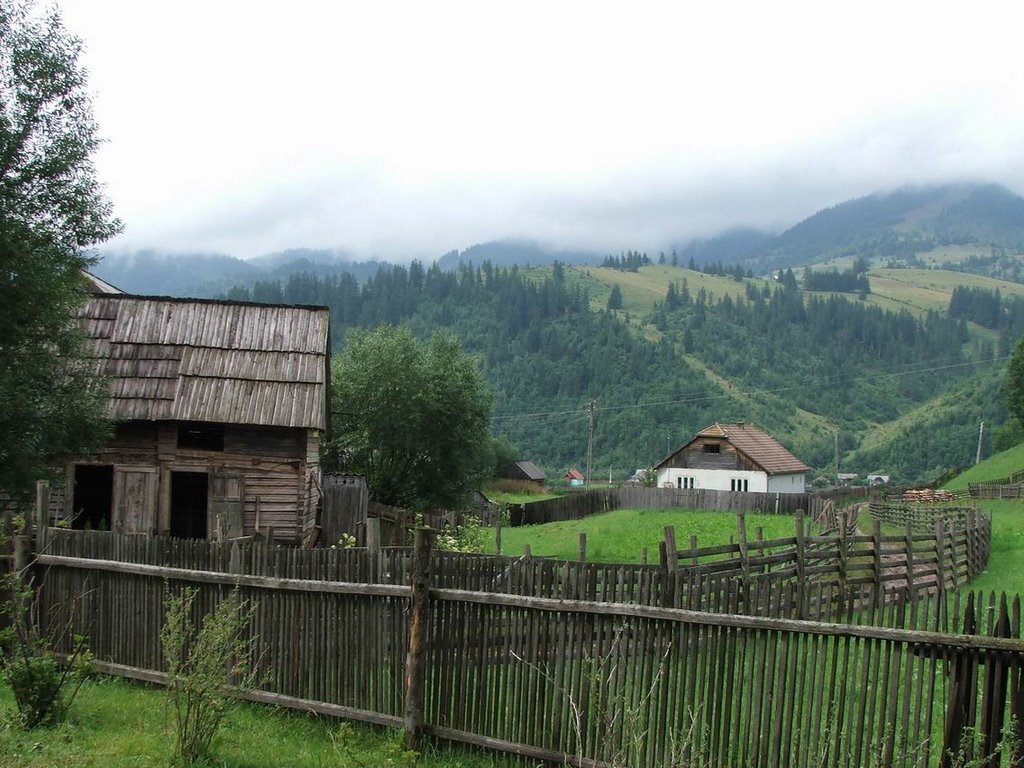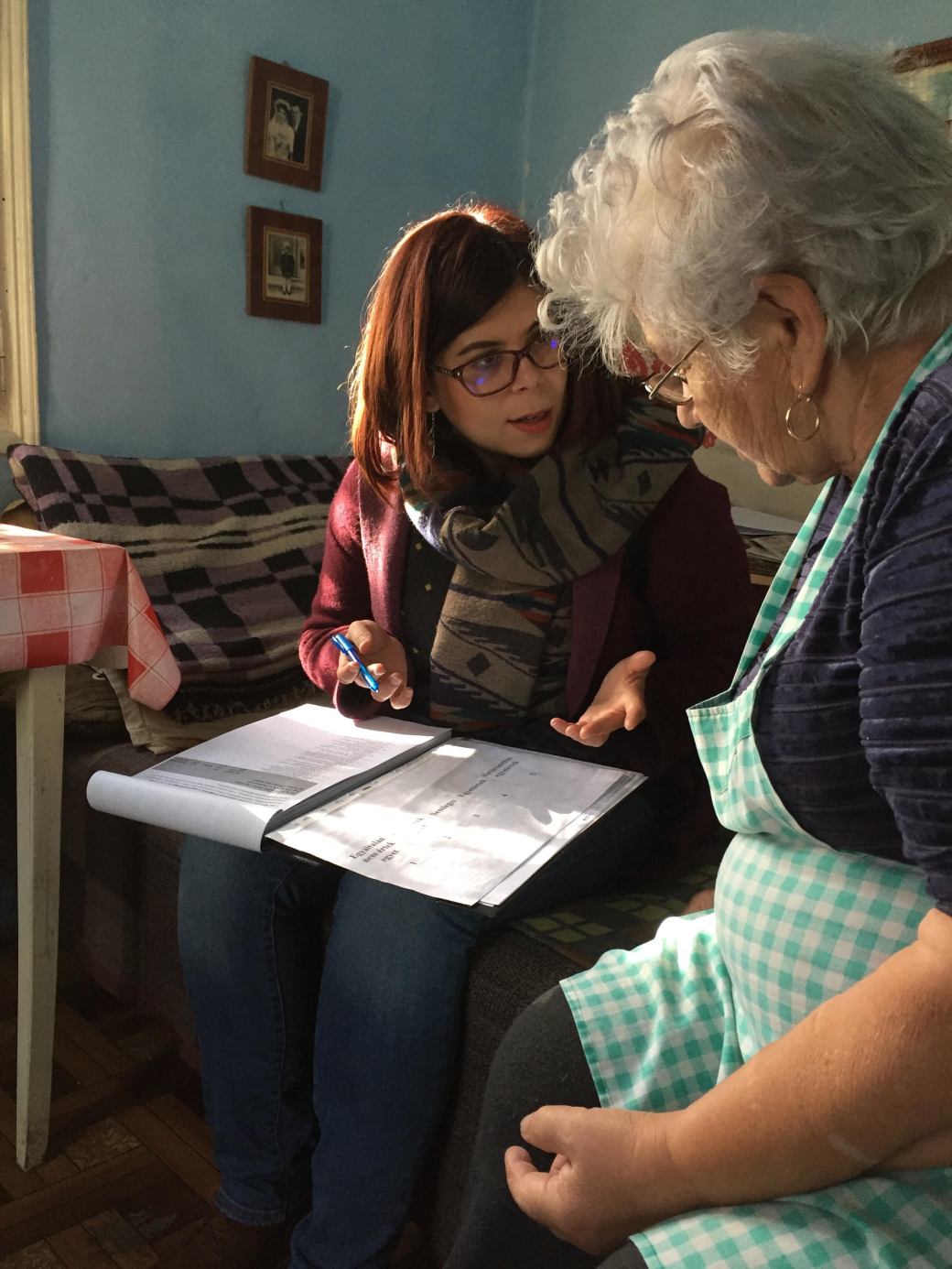Just to warn you from the beginning, this blog post is not about scientific evidence, results, theories or anything really related to the rigours of research. This post is about the other things that usually people don’t talk about or don’t like to mention, not because they are not important, but because they go away with time: the emotions and feelings that one experiences while doing fieldwork. We all know that emotions are part of our daily experience, yet we try to either hide them or we don’t know how to grasp them properly. The fact that fieldwork can involve emotional experiences on the part of the respondent is now fairly well understood, however what is sometimes overlooked is that the researcher is also involved in the interview or discussion, which means he is also not immune to emotional experiences in the field. This time I am going to share my personal experience, which might be different from what others experience, but is still important enough to talk about.
I spent roughly 41 days doing fieldwork in Romania. We collected (together with my colleague Katie Klaniecki) 178 surveys from the Poganyi-Havas Microregion, in the counties of Harghita and Bacău. This area is located in the Eastern Carpathians of Romania and comprises two distinctly separate regions: Ciuc (Csik) and Ghimeș (Gyimes). The Ciuc basin has a wide, open landscape surrounded by mountains, while Ghimes is a mountain area with deep and narrow valleys. Approximately 85% of the residents are Hungarian ethnics, 13% Romanians and 2% belong to the Roma community. Therefore, in order to conduct these surveys I had to speak mostly Hungarian to communicate with the people in the region. As I speak both languages, that requirement was covered and I actually felt quite confident in switching from Hungarian to Romanian and English in the same hour, if I had to.

Lunca de Jos
I guess we all have expectations about how things will go, however, we cannot always anticipate emotional challenges, as they frequently arise as the result of discussion that is only indirectly related to the focus of the research or not at all. I can certainly say that this fieldwork was one of the most emotionally challenging ones that I experienced so far. I personally think that being a good field researcher is not just about collecting the raw data and ticking some boxes, there is an interaction component, between you – the researcher and the people with who you interact. The interaction part was actually the key to each of our survey. The first 5 minutes were always critical: walking around the villages, trying the gate, seeing if it’s locked or not, making sure there is no scary dog around, and then talking to people. As a side note, we have to understand that in Romania there is not really a culture of participation in research studies. People are reluctant and always scared when they are questioned, and I guess some things from the communist regime still reside, especially in rural areas. People in this region have a very simple life, and most of them have a semi subsistence farm or are actively involved in family farming. As a researcher in this area, you really have to make an effort to gain people’s trust: you must be modest, use simple and meaningful sentences, relate to their problems and listen to them carefully, empathize with them (but not over-empathizing). Some might be very interested in your topic and might engage in good conversations, while others might be more reluctant and afraid, but then it’s your job as a researcher to bring these people closer to you, to encourage them to express their opinions and to try to understand them, even if what they say is communicated in just a few words.

During an interview or discussion between two or more people there will always be an emotional dimension, but I never felt this as much as I did during this work. It happened several times during our many survey discussions that I had to put my own emotions aside and, instead, make space for acknowledging the emotions of the respondents, even when they were not related to our research topic. Sometimes, by the end of the day these emotions would follow me back to my room. Then I realized that I am not as immune as I thought to some of the topics that were brought up by the respondents. Historically, there was always a conflict between Romanians and Hungarian ethnics from this region and because history cannot be changed or rewritten, some people still engage in mean conversations, which are usually oriented towards xenophobic stereotypes. I was born and raised in a mixed family, with a Romanian father and a Hungarian mother, so for me from an early age the acceptance of others was something very normal, I related to both of these nationalities equally and respectfully. Moreover, being a woman researcher in Romania and surveying men in rural areas is not always the easiest task and certainly you don’t end up having the most pleasant conversations, especially not when your nationality is insulted or you experience gender-based remarks. I thought about these things several nights, and I tried to understand myself and the fact that I cannot change people or how they see things, I can just listen to what they have to say and take out the information that is relevant for my research, and the rest is just “background noise”, at least the part that for me was more disturbing. I guess what I learned mostly from this experience was about myself, how to deal with my own emotions and consider my everyday experiences in new ways. This helped me understand why I react and respond in the ways I do and encouraged me not only to watch others but also to watch myself as I watch them – consciously.
Emotions are important. Of course, we cannot expect hard and fast guidelines for all fieldwork situations, but if emotions in research are not acknowledged, not only will researchers be left vulnerable, but also our understanding of the social world will remain impoverished and incomplete.
Thank you for your post. Emotions are indeed an important part of fieldwork that are not often acknowledged.
LikeLike
Thank you for your appreciation. Ioana
LikeLike
Pingback: A taste of Szépvíz* on a foreigner’s tongue | Leverage Points for Sustainability Transformation
Pingback: Coming to terms with the past in Transylvania | Leverage Points for Sustainability Transformation